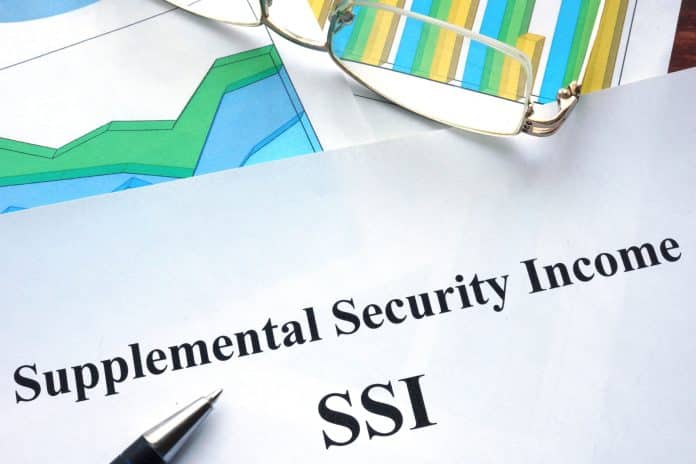
Supplemental Security Income (SSI) is a form of financial assistance for eligible individuals with limited income and resources. When qualified, it leads to vital financial support that can improve the quality of life for recipients. However, there can be challenges or obstacles, such as meeting the eligibility criteria. You should be aware that there are solutions, such as the SSI program.
SSI Program
The Social Security Administration (SSA) administers the SSI program. Through SSI, recipients can receive financial assistance if they meet the eligibility criteria. To benefit from the program, an applicant needs to:
- Meet Income Requirements: SSI is designed for individuals with limited income and resources. To qualify, your income must be below a certain level.
- Have a Disability or Be Elderly: SSI is primarily intended for disabled adults and children, as well as individuals aged 65 and older.
Application Process for SSI
The application process for SSI is straightforward. There are several ways an individual can apply, including online through the SSA website, in person at a local SSA office, or by phone. The general application process is as follows:
- Gather Relevant Documentation: To apply for SSI, gather essential documents, including proof of identity, income, resources, and medical records. A useful resource for this is the SSA’s official website.
- Review the Application: Carefully review the application to ensure all details are accurate and complete.
- Submission and Review: After submission, the SSA will review the application based on specific criteria.
Information Needed for the Application
When applying for SSI, it’s crucial to have all the necessary information on hand. Here’s what you might need:
- Personal Identification: Social Security number, birth certificate, and proof of citizenship or alien status.
- Financial Information: Details about income, resources, and financial accounts.
- Medical Records: Documentation of your disability or medical condition.
- Living Arrangements: Information about your living situation and expenses.
How Much Can SSI Provide?
The benefits provided by SSI can vary depending on specific circumstances. In 2024, the average monthly benefit amount was $1,415 for couples and $943 for an individual. This figure can vary based on factors like the recipient’s income, living arrangements, and other considerations.
Timing for Benefits
There’s usually a waiting period associated with SSI. Typically, recipients can expect to start receiving benefits after a waiting period of 1 month from application or approval date.
Other Alternatives to Consider
While SSI is a primary option for financial assistance, there are other support programs to be aware of:
- Social Security Disability Insurance (SSDI): SSDI offers benefits to disabled individuals who have contributed to the Social Security system via work credits.
- Medicaid: Medicaid offers healthcare coverage to low-income individuals and families, including some SSI recipients.
- Temporary Assistance for Needy Families (TANF): TANF provides cash assistance to families in need.
FAQs about Supplemental Security Income (SSI)
What Should I Do if I am Denied SSI Benefits?
If your SSI application is denied, you have the right to appeal the decision. You can request an appeal within 60 days of receiving your denial notice. It’s essential to provide additional information and documentation to support your case during the appeals process.
What Happens if My Income or Living Situation Changes?
Your SSI eligibility and benefit amount can change if your income or living situation changes. It’s crucial to promptly report any changes to the SSA to avoid overpayments or underpayments. They will figure out the actual impact of the changes when it comes to your benefits.
Will Receiving Other Benefits Impact My Eligibility for SSI?
Receiving other forms of assistance can possibly affect your SSI eligibility and the amount of SSI you receive. It’s important to understand how these benefits work with each other, and you can contact the Social Security Administration (SSA) for guidance.
Can I Receive SSI Benefits if I am Incarcerated?
Individuals who are incarcerated in a jail, prison, or correctional facility are not eligible to receive SSI benefits. However, someone who has been released from prison might qualify. Contact the SSA for specific information if you are or will be incarcerated.
Are There Resources Available for Homeless Individuals Seeking SSI Benefits?
Yes, the SSA recognizes the challenges faced by homeless individuals. They offer resources and assistance to help homeless individuals apply for and receive SSI benefits. Homeless shelters, social service agencies, and outreach programs can also provide support during the application process.
Conclusion
Facing financial challenges due to limited income and resources can be daunting. If you find yourself in such a situation and meet the required criteria, the Supplemental Security Income (SSI) program might be a viable option. There are also other alternatives, such as Social Security Disability Insurance (SSDI), Medicaid, and Temporary Assistance for Needy Families (TANF), to consider. It’s essential to be informed about available options. For more information or to apply, contact the Social Security Administration!


















